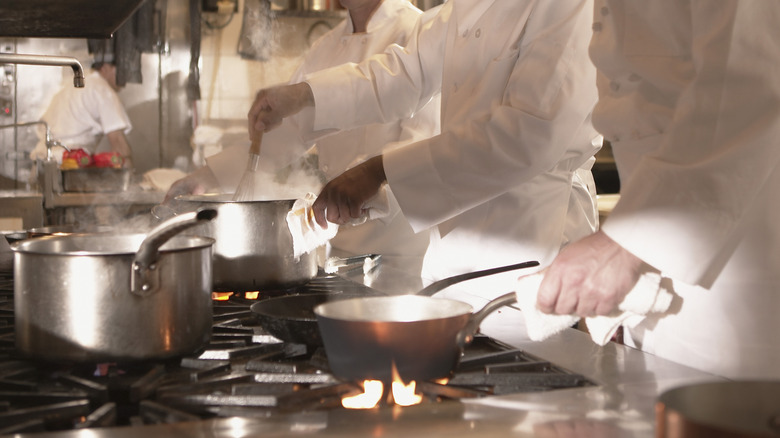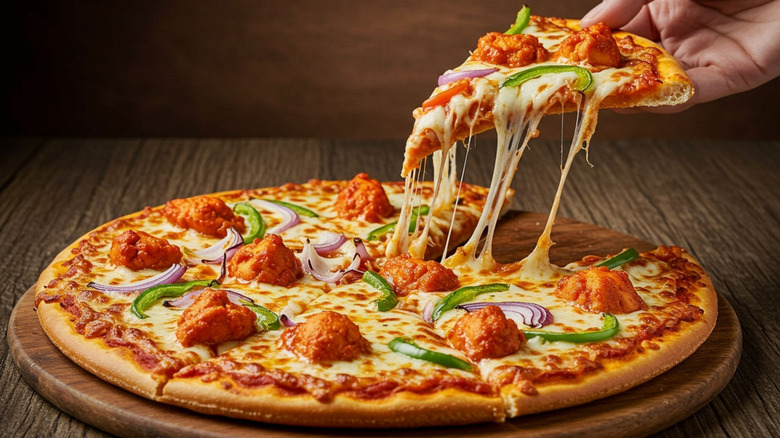The Cuisine Chefs Don't Like To Order At Restaurants
When the "King of the Hill" reboot aired on Hulu, I was admittedly surprised to learn that Bobby Hill was operating a German-Japanese fusion restaurant. While the trajectory more or less made sense for the character, fusion in 2025 felt dated. While the term fusion itself was coined in the '80s, its heyday would not come until two decades later, the early 2000s, marked by a collective fascination with culinary cross-pollination. However, food trends tend to come and go, and chances are what feels chic today will feel cheap and gimmicky in about 10 years.
Fusion food, too, suffered from the law of diminishing returns, with some of its most vocal critics becoming chefs. Those who cook professionally often feel fusion cuisine ends up less than the sum of its parts. While people's favorite fusion combinations tend to borrow flavors that pair well together, some foods simply don't mesh. While there are brilliant fusion chefs on the market like the Korean taco guru Roy Choi, not every professional quite masters the art. As is the case with many food trends, too many people tried to capitalize on the buzz to mix results.
Why do chefs dislike fusion food?
What killed fusion food? In part, it was market saturation with subpar products. In one Reddit thread on r/AskCulinary, a now-deleted user called fusion food "an easy way out," elaborating that "My thoughts are that fusion became a bad thing in the culinary world because most fusion restaurants are bad at both styles of cooking and rely on the idea of fusion to propel their restaurant success." Another user, Squeebee007, expressed similar sentiments, stating that too many people "just wrapped an Asian dish in a tortilla and called it fusion."
Additionally, flavor often gets lost in translation. There are some regional foods outsiders will never understand. A user named nikhilnn pointed out some tastes are less than appealing to the American palate, so chefs may "Americanize" their dishes to compensate. This might contribute to fusion's reputation as watered-down and overrated.
Of course, not all fusion food is bad, but the word does have something of a stigma. As GraphicNovelty pointed out, "Fusion cuisine was cool then it got popular and then a lot of people started doing it and then the cool chefs moved on and the public started to follow." Nowadays, many chefs note some of their favorite fusion cuisine is not overtly labeled as such. So, perhaps our fictional Bobby Hill would have better luck playing down the fusion angle if he wants Robata Chane to become one of the most iconic fictional food brands of all time.

